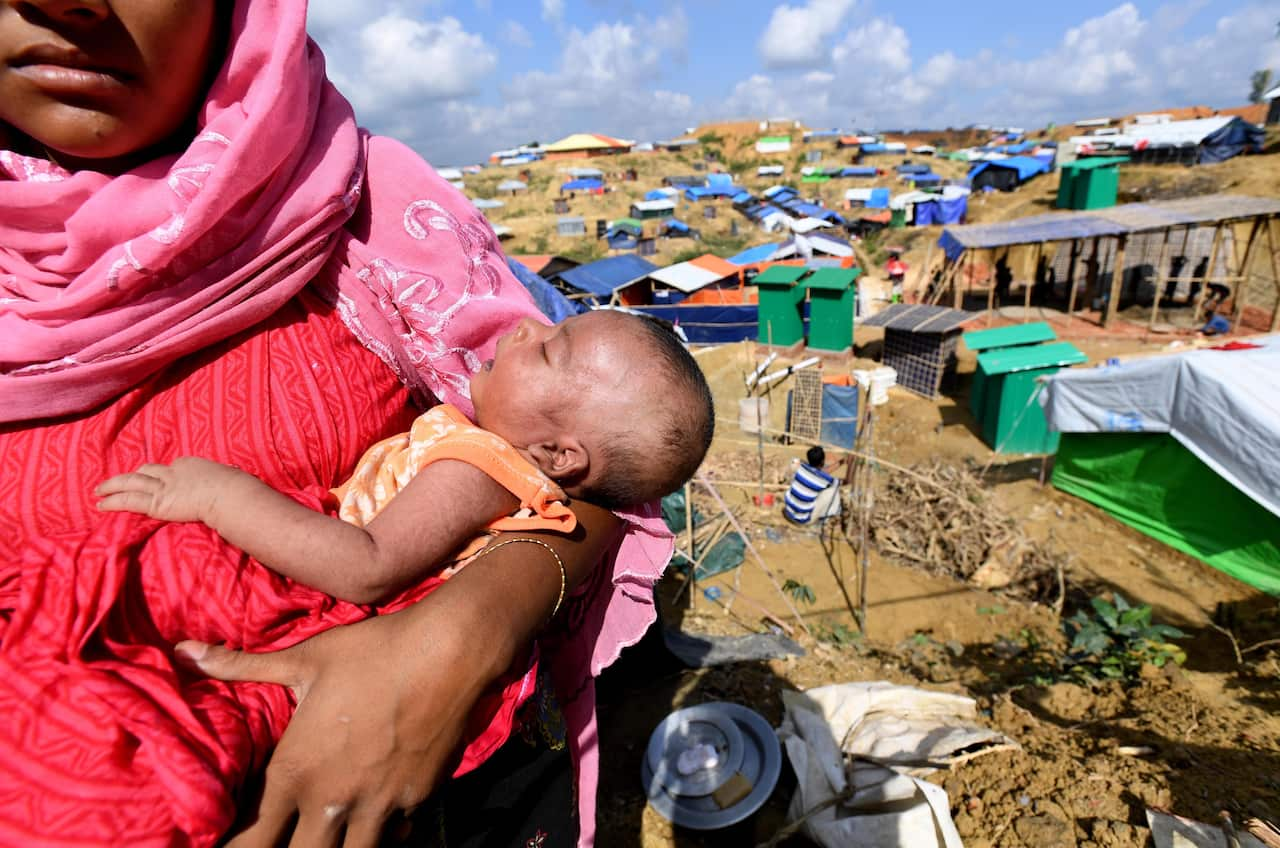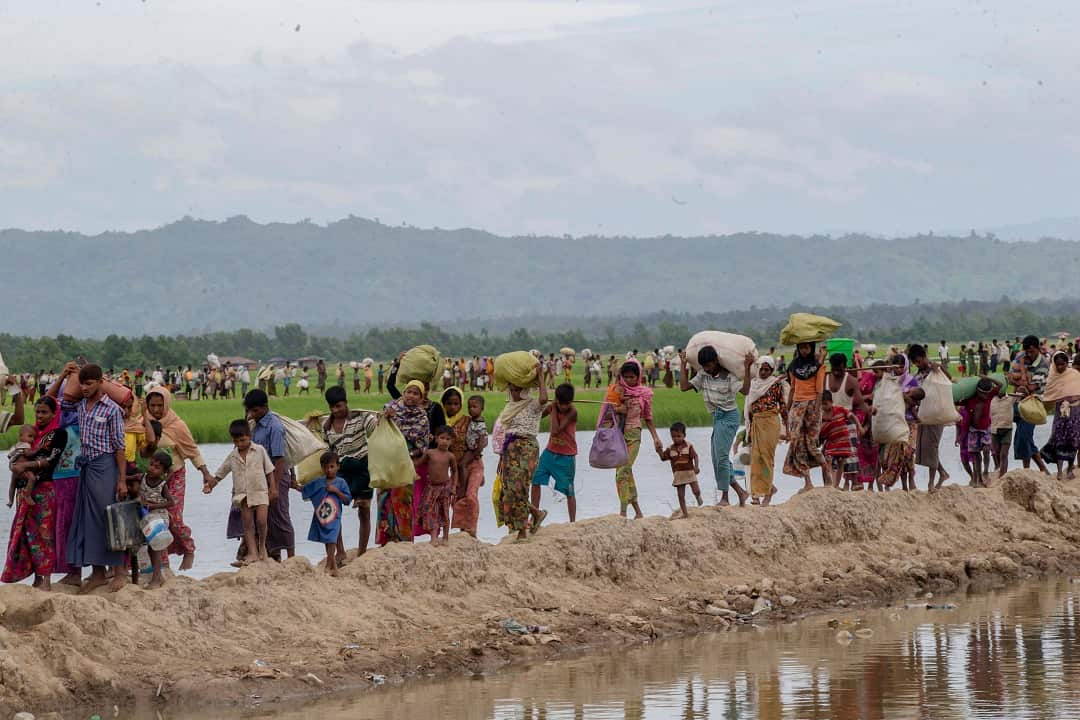It has been just over nine months since the start of a bloody incursion by the Myanmar military against Rohingya Muslims.
This marks a grim milestone in the sprawling refugee camps of Bangladesh that almost one million members of the ethnic minority now call home.
The UN claims Myanmar soldiers engaged in a "frenzy of sexual violence" last August and September, meaning babies conceived of rape are entering the world.
"We are expecting quite a number of [these] deliveries," Shoko Ishikawa, head of UN Women Bangladesh, told SBS News. Save the Children estimated in January that 48,000 babies would be born in the camps in 2018, but Ms Ishikawa said it was extremely difficult to ascertain exact numbers of those conceived due to rape.
Save the Children estimated in January that 48,000 babies would be born in the camps in 2018, but Ms Ishikawa said it was extremely difficult to ascertain exact numbers of those conceived due to rape.

A Rohingya mother and child in Bangladesh. Source: AAP
Many of the women "won't reveal where the pregnancy comes from … [due to] stigma around having a child of the Myanmar forces that have brutally killed so many people".
And the "shame" could mean mothers are less likely to give birth in the few available health facilities at the camps, she said.
"There's concern around how these deliveries will take place, will they be in unsafe conditions?"
Ms Ishikawa also said the international humanitarian community was assessing what to do if mothers abandon their babies.
Brutal crackdown
In August 2017, the Myanmar military responded to attacks from a small band of Rohingya militants in Rakhine State with a widespread crackdown against nearly all the Rohingya population.
A United Nations assessment found the "widespread threat and use of sexual violence" by the Myanmar armed forces "was integral to their strategy; humiliating, terrorising and collectively punishing the Rohingya community".
The report said Rohingya women – "seen as custodians and propagators of ethnic identity" – were targeted specifically. A Human Rights Watch report that interviewed dozens of sexual violence victims also found "all but one of the rapes reported were gang rapes, involving two or more perpetrators".
A Human Rights Watch report that interviewed dozens of sexual violence victims also found "all but one of the rapes reported were gang rapes, involving two or more perpetrators".

A 13-year-old Rohingya girl who says she was raped by Myanmar's armed forces. Source: AAP
All but one of the rapes reported ... were gang rapes - Human Rights Watch
"In eight cases, women and girls reported being raped by five or more soldiers," the report said.
"They described being raped in their homes and while fleeing burning villages."
Uncertain future
Save the Children's Beatriz Ochoa told SBS News that Rohingya women who experienced sexual violence "will often still be grappling with the horrific experience of being raped and having a child outside of marriage and social norms".
Ms Ochoa said both mother and child may experience "many forms" of stigmatisation in the years ahead including "physical violence, being ostracised from the community, and [for the children,] growing up with a label attached to them." She said other single mothers due to give birth around this time may also be prejudiced against, even if their baby wasn’t conceived through rape.
She said other single mothers due to give birth around this time may also be prejudiced against, even if their baby wasn’t conceived through rape.

Rohingya Muslims flee from Myanmar to Bangladesh in 2017. Source: AAP
"Some of these babies, for instance, might have lost their fathers during the violence that erupted in Myanmar."
Reasons for hope
But an international humanitarian worker who asked to remain anonymous told SBS News she had seen reasons for hope in Bangladesh’s refugee camps.
She said there were groups of women who were "already initiating their own community-based methods for dealing with trauma, which are providing assistance and comfort to those who have experienced rape".
Despite some stigma, she had encountered men who were "keenly aware of the violence that Rohingya woman suffered last year, including rape" and consequently were "supportive and caring".
She said while some in the community will stigmatise women for being raped, others will "realise that these woman require extra support at this time".
"The experience of the last year has united the Rohingya community, and there is a real awareness of protecting and providing for the most vulnerable."
